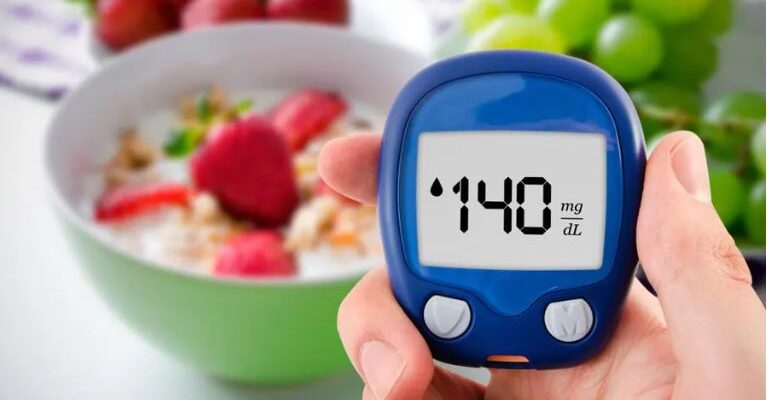Did you know that what you eat could significantly impact your risk of developing Type 2 diabetes? Recent research from the UK has uncovered that consuming certain flavonoid-rich foods and drinks, such as green tea, berries, and apples, can lower the risk of Type 2 diabetes. Let’s dive into how these simple dietary choices can make a huge difference in your health.
Understanding Type 2 Diabetes
Type 2 diabetes is a chronic condition that affects the way your body metabolizes sugar (glucose). It occurs when your body becomes resistant to insulin or when your pancreas doesn’t produce enough insulin. Common symptoms include increased thirst, frequent urination, hunger, fatigue, and blurred vision. With over 38 million Americans affected, most of whom have Type 2 diabetes, understanding and managing this condition is crucial.
The Role of Diet in Diabetes Prevention
Diet plays a pivotal role in managing and preventing Type 2 diabetes. A plant-based diet, rich in fruits, vegetables, and whole grains, has been shown to significantly reduce the risk of developing diabetes. The latest study emphasizes the importance of flavonoid-rich foods in this preventive strategy.
Introduction to Flavonoids
Flavonoids are natural compounds found in various fruits, vegetables, and other plant-based foods. They are renowned for their numerous health benefits, including anti-cancer, antiviral, antibacterial, antioxidant, and anti-inflammatory properties. There are six main types of flavonoids, each with unique biological activities and benefits.
Key Findings from the UK Study
A recent UK study involving 113,097 participants used at least two 24-hour dietary assessments to evaluate their Flavodiet Score, focusing on their intake of black and green tea, red wine, apples, berries, grapes, oranges (including satsumas), grapefruit, sweet peppers, onions, and dark chocolate. The findings were striking: six servings of flavonoid-rich foods were linked to a 26% lower risk of Type 2 diabetes.
Green Tea: A Flavonoid Powerhouse
Green tea, rich in catechins and other flavonoids, stands out as a powerful drink for reducing diabetes risk. It has been shown to improve insulin sensitivity and lower blood sugar levels. To reap the benefits, aim to drink 3-4 cups of green tea daily.
Berries: Small Fruits with Big Benefits
Berries, including blueberries, strawberries, raspberries, and blackberries, are packed with anthocyanins, a type of flavonoid known for its potent antioxidant effects. These fruits help regulate blood sugar and improve insulin sensitivity. Incorporate a variety of berries into your diet, aiming for at least a cup a day.
Apples: An Everyday Superfood
An apple a day might indeed keep the doctor away, especially when it comes to diabetes. Apples are rich in quercetin, a flavonoid that has been shown to reduce the risk of Type 2 diabetes by improving insulin resistance and lowering inflammation. Enjoy an apple as a daily snack for optimal benefits.
Other Flavonoid-Rich Foods and Their Benefits
- Grapes: Contain resveratrol, which helps improve insulin sensitivity.
- Oranges: Packed with hesperidin, known to reduce blood sugar levels.
- Sweet Peppers: High in luteolin, which has anti-inflammatory properties.
- Onions: Rich in quercetin, beneficial for reducing blood sugar levels.
- Dark Chocolate: Contains flavanols, which can improve insulin sensitivity and lower blood sugar levels.
Combining Flavonoid-Rich Foods for Optimal Health
To maximize the benefits, combine various flavonoid-rich foods in your diet. Start your day with a green tea and berry smoothie, snack on apples and dark chocolate, and include sweet peppers and onions in your meals. Here’s a sample daily menu:
- Breakfast: Green tea, berry smoothie, and oatmeal with sliced apples.
- Lunch: Mixed green salad with sweet peppers, onions, and a citrus vinaigrette.
- Snack: An apple with a piece of dark chocolate.
- Dinner: Grilled chicken with a side of sautéed sweet peppers and onions, and a handful of grapes for dessert.
The Science Behind Flavonoids and Diabetes Prevention
Flavonoids work in the body by reducing inflammation, improving insulin sensitivity, and acting as antioxidants. These properties help lower the risk of chronic diseases, including Type 2 diabetes. Numerous studies support the benefits of flavonoids, highlighting their role in maintaining blood sugar levels and overall metabolic health.
Practical Tips for Increasing Flavonoid Intake
- Easy Swaps: Replace sugary snacks with fruit, choose green tea over soda, and use onions and sweet peppers in your cooking.
- Cooking Tips: Add berries to your breakfast cereal, incorporate apples into salads, and use dark chocolate in healthy dessert recipes.
- Snacks: Keep a mix of berries and apples on hand for quick and healthy snacks.
Potential Challenges and How to Overcome Them
Common barriers to a flavonoid-rich diet include availability and cost. To overcome these, buy fruits and vegetables in season, look for sales and discounts, and consider frozen berries, which are often more affordable and just as nutritious.

